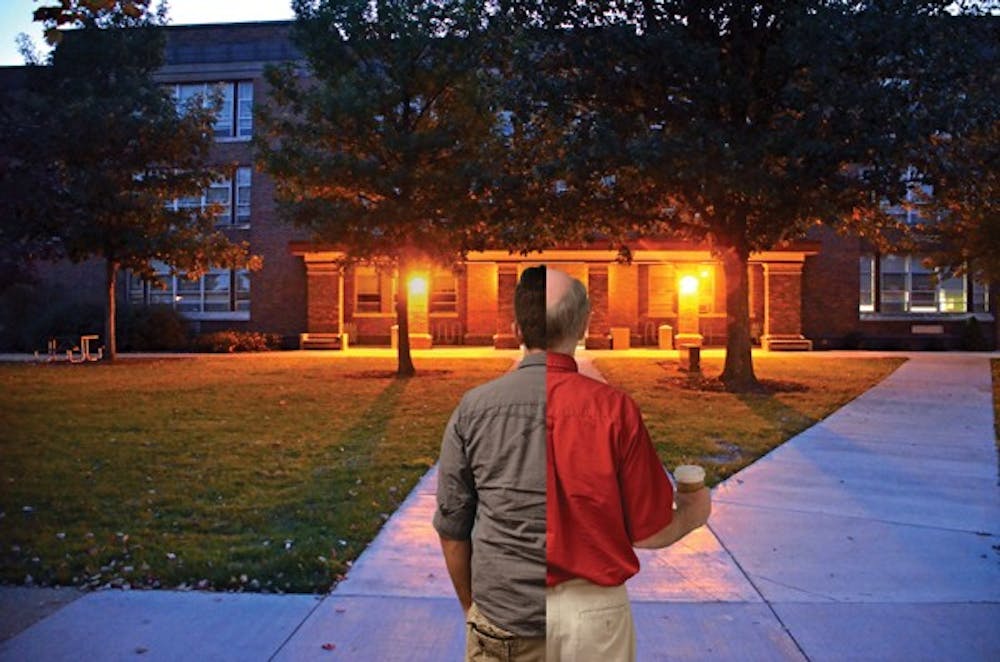The Breakfast Club: How a group of retired professors keep their Chip loyalty 'coffee strong'
The bonds of friendship can easily be compared to cups of coffee – the stronger, the better.
Nobody on campus understands that more than a small group of former Central Michigan University professors who have met in almost exactly the same spot at 10 a.m. on Wednesdays for the past 40 years.
They’ll gather at a table in the Down Under Food Cafe in the Bovee University Center, munching on pastries, sipping coffee and sharing conversation. Chances are, they'll practically go unnoticed in the shuffling din of hurried students.
Yet this stately unit carries with them the wisdom and antiquity of CMU's glory days, when students protested and fought for their rights and when the various bodies of faculty and administrators worked in unison.
It's a climate, they admit, that has been all but forgotten.
“There was a lot more interaction between students, faculty and administration back then,” said Forrest Robinson, one of two retired music professors in the group. “Today, it's hard to do that because there isn't any one place (or event) right now where students and faculty – even with other faculty – can get together."
Comprised of one history professor, Robinson and his musical colleague, the former head of the campus art gallery, and two other prolific faculty members, this weekly breakfast club informally emulates an old campus-wide coffee function, one held dearly when they began their employment with the university in the late 1960s.
"The coffee hours brought diverse members of the university together," said Martha Smith, a former teacher education professor. "It was very difficult to have coffee with someone and be collegial, and then go to a committee meeting and then be obstinate. It built a decor that was very positive."
The free flow of thoughts and ideas were a staple of the time, when student protests were at a peak and the collective consciousness begged for change.
It was, after all, the era of Civil Rights, Vietnam and Women's Liberation, said Dennis Thavenet, the group's resident historian and unofficial spokesperson.
"In the early years, I suppose, it was student activism," Thavenet said. "They took over Central (Grawn) Hall with a lot of activism. They were Anti-Vietnam War, of course, but that led to a big Student's Rights movement, too. Men could never enter a woman's dorm, they could only get in the lobby, things of that sort. So, when you're talking about same-sex dorms now or double-sex dorms, those are all big changes made by these student activists."
All things are evolutionary, even for the faculty.
"I believe the faculty unions came out of that movement, too," said Marcella Kocar, a retired business instructor.
Students even lobbied for Board of Trustees membership and made enough waves to get a student involved with the proceedings, Thavenet said.
The collaborative, progressive mindset, however, was eventually met with opposition. Some thought the coffee hours could be a detriment to the college, and ought to be contained, if not stopped entirely.
"One of our presidents, Leonard Plachta, if I may say who it was, shut the faculty and student cafeteria upstairs down – supposedly to cut costs," Robinson said. "But it was pretty widely known that he thought there were various plots being hatched against him over here. So that kind of paranoia led to him shutting it down. I think that was unfortunate."
When they meet, the conversation picks up right where it left off.
They'll talk about the weather, the price of gas, but more importantly, what it is about the modern CMU that worries them today.
Thavenet worries about the rate of administrative growth compared to a decline in faculty, while others in the group have different concerns.
"I think we're well aware of tuition problems here," said Dennis Horton, the other music instructor and the youngster of the group. "The fact that students have to price themselves right out of an education is a sad state of affairs. Students have this easy access to these huge loans, which at the time you're in school you don't worry about it. But you have these huge bills that are $25,000-$35,000, how are you ever going to pay that back?"
Another sticking point for Horton: Collaboration breakdown.
"Communications here at the higher level, from the president on down. We're well aware of that," he said. "Would we ever expect to see (University President) George Ross here with us? No. The other presidents in the past did, they'd stop by passing through just to see what's happening. (Former University President) Bill Boyd did."
However critical, the group has a love for CMU that spans generations – and a friendship that's good to the last drop.
"I think we all just like each other," Thavenet said. "I suppose that's why we've been doing it for all these years"




